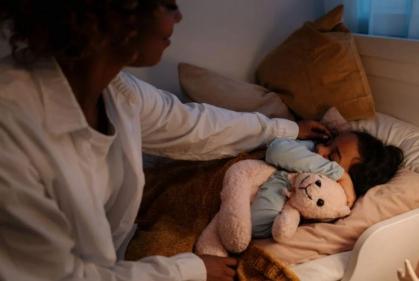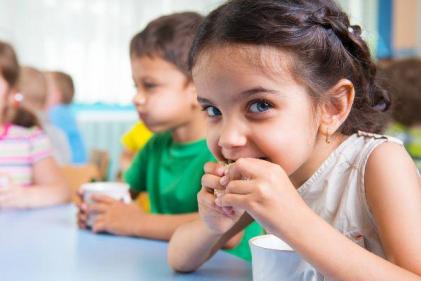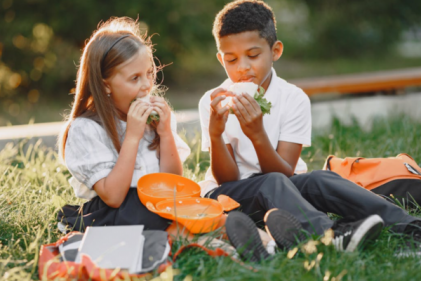Science skills that are gained during the first year of primary school are largely built on the curiosity that was built during the preschool years. Children who are 5-6 years of age are developing their skills for thinking scientifically but are also beginning to learn scientific concepts.
5-6 year olds learn through play
Children of this age need opportunities to play and investigate ideas on their own. During play, children use building blocks to model buildings they commonly see in their own environments such as houses and schools. The trial and error nature of play allows children to see what needs to happen for blocks to stay balanced or what happens to cause the blocks collapsing.
5-6 year olds learn through play
Children of this age need opportunities to play and investigate ideas on their own. During play, children use building blocks to model buildings they commonly see in their own environments such as houses and schools. The trial and error nature of play allows children to see what needs to happen for blocks to stay balanced or what happens to cause the blocks collapsing.
5-6 year olds learn to differentiate between living and non- living things
A pre-school child is able to bring all objects to life by using their imagination. However, a child who is 5-6 years old will be able to see the difference between living and non living things. Simple observations include, living things can grow and change, have babies and can move.
A pre-school child is able to bring all objects to life by using their imagination. However, a child who is 5-6 years old will be able to see the difference between living and non living things. Simple observations include, living things can grow and change, have babies and can move.
5-6 year olds can identify parts of their natural world
Your child at this age is typically fascinated by nature and its endless array of animals, plants and insects. Children of this age, can typically identify elements in their environment such as trees, soil, and water and understand that they are different to man-made objects found in their school or home.
Your child at this age is typically fascinated by nature and its endless array of animals, plants and insects. Children of this age, can typically identify elements in their environment such as trees, soil, and water and understand that they are different to man-made objects found in their school or home.
5-6 year olds use imagination, pictures and diagrams
A child of this age will be beginning to observe, consider and report about their scientific investigations and findings. They have not yet learnt the language to support their findings but will use diagrams to explain why certain things happen. These pictures and diagrams represent hypotheses and is a skill that should be encouraged.
A child of this age will be beginning to observe, consider and report about their scientific investigations and findings. They have not yet learnt the language to support their findings but will use diagrams to explain why certain things happen. These pictures and diagrams represent hypotheses and is a skill that should be encouraged.
5-6 year olds can suggest reasonable ways to solve a problem
Children of this age will also begin to suggest ways to solve problems, but are not capable of abstract thought. They require prior knowledge learned from real life experiences to resolve solutions, e.g. “I don’t want the ice to melt so I will move it out of the sun, last time it melted 5-6 year olds begin to ask more detailed questions
A child of this age is no longer simply asking ‘Why?’, they will begin to ask more detailed and specific questions. Children at this age will begin to ask about scientific concepts that are relevant to them.
Children of this age will also begin to suggest ways to solve problems, but are not capable of abstract thought. They require prior knowledge learned from real life experiences to resolve solutions, e.g. “I don’t want the ice to melt so I will move it out of the sun, last time it melted 5-6 year olds begin to ask more detailed questions
A child of this age is no longer simply asking ‘Why?’, they will begin to ask more detailed and specific questions. Children at this age will begin to ask about scientific concepts that are relevant to them.
5-6 year olds benefit from technical language
It is important to try and use correct language when explaining scientific concepts to children of this age. Begin introducing some technical language when explaining how a scientific concept works, e.g. instead of saying “The sun has gone away”, try saying “Our side of the Earth has turned away from the sun.”
Children aged 5-6 are learning the concept of cycles
Your 5 to 6 year old child will be learning about how changes often occur in a cycle, e.g. a life cycle and that these changes occur in different stages. Children can understand this by looking at how a kitten becomes a cat or how they were a baby, have grown bigger and are now in school.
It is important to try and use correct language when explaining scientific concepts to children of this age. Begin introducing some technical language when explaining how a scientific concept works, e.g. instead of saying “The sun has gone away”, try saying “Our side of the Earth has turned away from the sun.”
Children aged 5-6 are learning the concept of cycles
Your 5 to 6 year old child will be learning about how changes often occur in a cycle, e.g. a life cycle and that these changes occur in different stages. Children can understand this by looking at how a kitten becomes a cat or how they were a baby, have grown bigger and are now in school.
Read more about scientific milestones for 7-8 year olds here.












